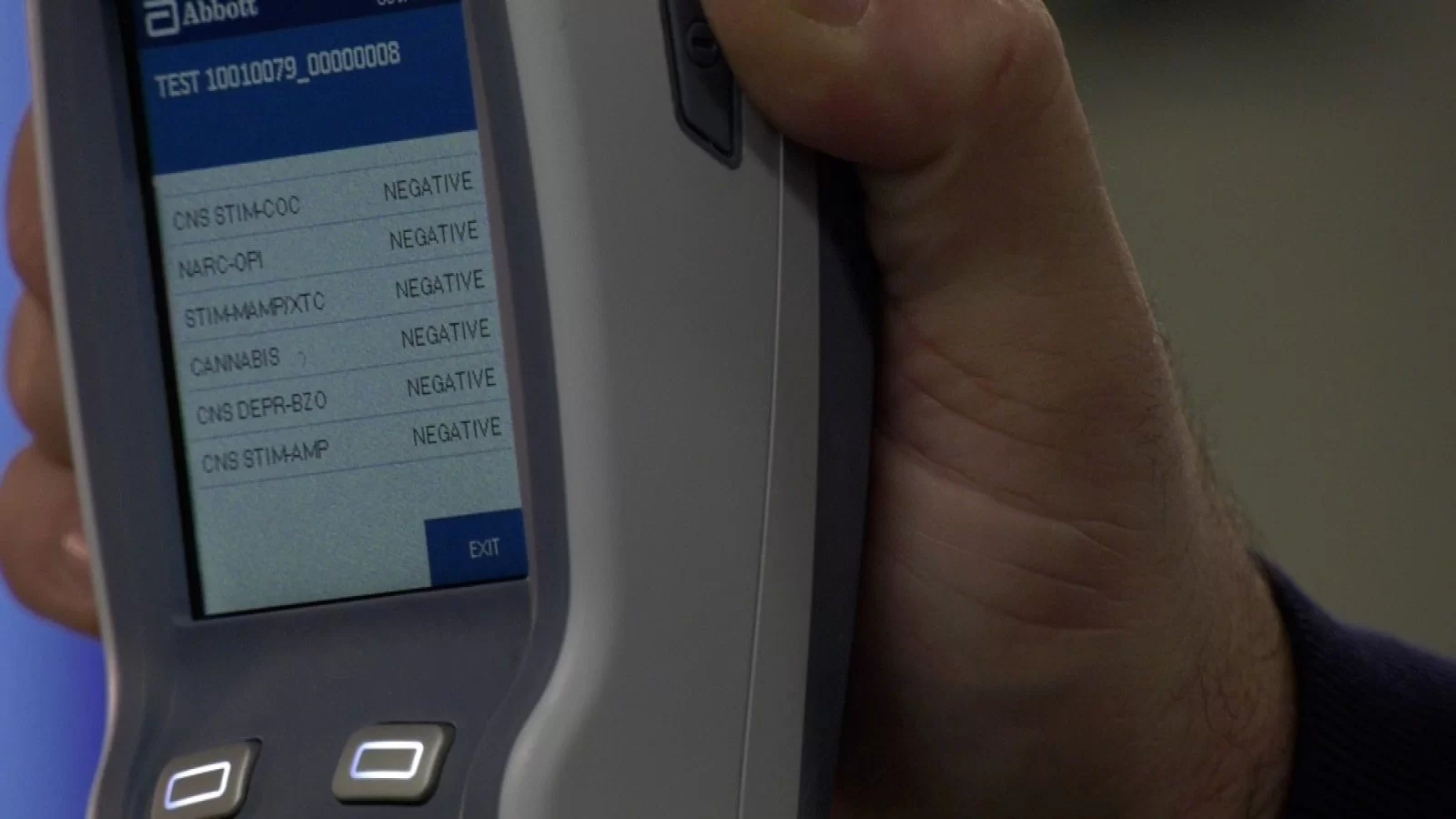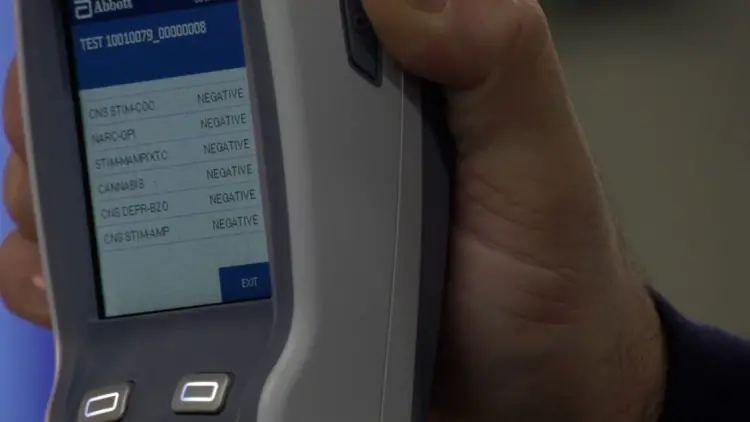In Minnesota, several police officers are trialing an innovative device aimed at detecting various drugs, including the recently legalized cannabis, in motorists.
The past half-decade has seen a startling 96% increase in cases of drug-impaired driving, with the figures rising from 8,069 between 2013-2017 to 15,810 in the span of 2018-2022.
Mike Hanson, who leads the Office of Traffic Safety at the Minnesota Department of Public Safety, emphasized the need for new strategies to address drug-impaired driving, a longstanding issue on Minnesota’s roads.
Maple Grove Officer Jesse Mathwig, along with other statewide law enforcement personnel, are drug recognition officers (DROs). They possess specialized training to identify drug-induced physical signs and behaviors.
Mathwig highlights a common misconception about marijuana consumption and driving, equating it to having an open alcohol container in the vehicle, which is illegal.

Edina police officer Jaren Zech practices administering a test on Maple Grove officer Jesse Mathwig.
Initiative Rollout
Approximately 100 officers gathered in Maple Grove recently for a training session on the new drug detection device.
The SoToxa mobile test system, developed by Abbott, is capable of rapidly screening for the presence of drugs in oral fluid. The test involves a quick swab of about 30 seconds, followed by a five-minute analysis by the machine, indicating recent drug use.
This system screens for substances like THC in cannabis, cocaine, methamphetamine, opiates, amphetamine, and benzodiazepines, functioning similarly to roadside alcohol breath tests.
Officers completed their training recently and will soon undergo training on the Dräger Drug Test 5000, another system with similar capabilities.
Mathwig believes that this technology will significantly aid officers, particularly those not trained as DROs, in enforcing DUI laws and enhancing road safety.
Program Goals and Implementation
Currently, this pilot program is in an experimental phase. Participation by drivers is voluntary, and the results are not applicable in legal proceedings or arrests.
Hanson clarified that the results from this pilot study are solely for research and cannot be used in court or for driver’s license sanctions, nor to establish probable cause for arrest.
The findings from the pilot program will be presented to the legislature in 2025 for potential approval.
Hanson hopes for active participation in the pilot program to contribute to safer roadways for everyone.
OTHER NEWS: Marijuana and Trucking: Impacts and Insights









